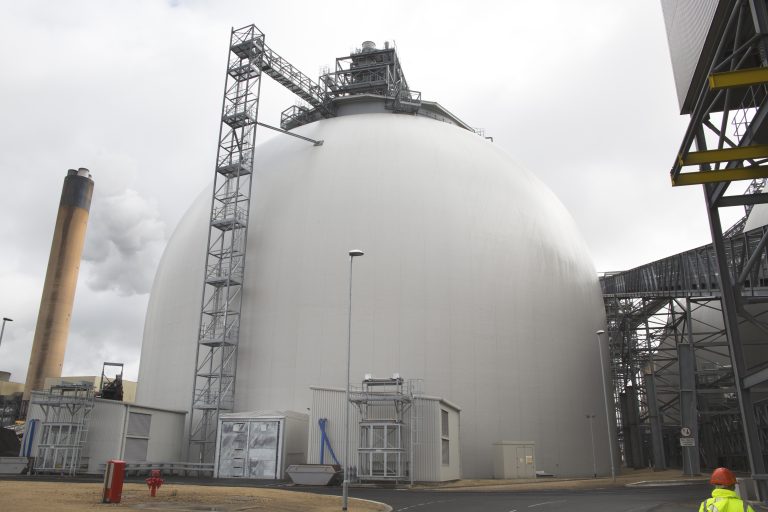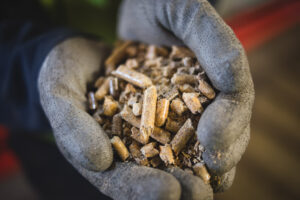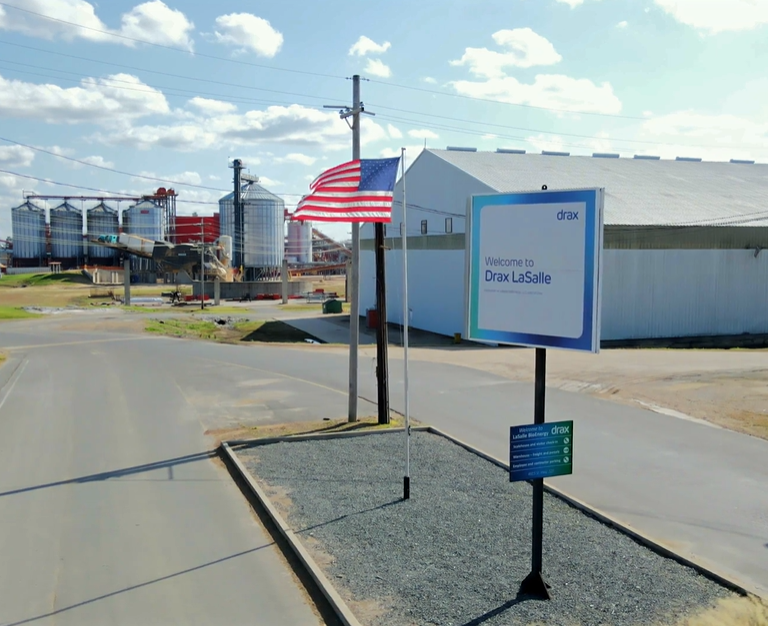Speaking at the ‘Fuelling an economy fit for the future’ panel event at the British Chambers of Commerce annual conference in London on Thursday March 28, Mr Gardiner said that we can create the zero-carbon economy that provides sustainable jobs and new opportunities in areas that have suffered industrial decline, whilst at the same time meeting our climate change objectives.
Mr Gardiner said:
“Climate change is the greatest challenge the world now faces – but it is also creating major new investment and job opportunities, which could be transformational after Brexit.
“Globally, by 2030, estimates show that the economic opportunity from creating a zero-carbon economy is upwards of £20 trillion – and the UK is ideally placed to drive the innovation required to take advantage of this.
“We’re already leading the world when it comes to decarbonising power generation – we’ve done more than any other country to remove coal from the grid. We must continue to drive innovation, to deliver further social, economic and environmental benefits through new technologies like carbon capture and storage, smart meters and electric vehicles.”
Drax has converted two thirds of the UK’s biggest power station at Drax in North Yorkshire from coal to use sustainable biomass, making it the biggest decarbonisation project in Europe – delivering carbon savings of more than 80%.

Wood pellet storage dome at Drax Power Station (centre) and chimney (left). A BECCS pilot is underway to show that 90% of the carbon dioxide emissions could be captured, stored or re-used. Click to view high resolution photo.
It now has ambitions to become the world’s first negative emissions power station by using bioenergy carbon capture and storage technology. Its BECCS pilot plant is the world’s first to capture carbon dioxide from a 100% biomass feedstock. If it can be scaled up, the power produced could help reduce the harmful gases accumulating in the atmosphere which cause climate change.

Humber Bridge
Mr Gardiner explained that Drax is working with the Humber Local Enterprise Partnership, and other interested parties to explore the role carbon capture utilisation and storage (CCUS) can play in turning the Humber Estuary into the world’s first ‘net-zero-carbon cluster’ by 2040.
“The Humber is strategically important – it is the most carbon intensive industrial cluster in the UK. The deployment of a new technology like CCUS could be most transformational there – reducing carbon emissions, extending the life of carbon intensive businesses, protecting jobs and creating growth,” Mr Gardiner explained.
“New technologies are already transforming the way we live and work – they are changing businesses and communities, and have the potential to improve everyone’s quality of life as well as Britain’s ability to compete in a global economy.
We are funding a PhD at Sheffield University — customer interaction with vehicle to grid systems using smart technology.
“Electricity demand could increase by around 25% compared to today, as households and businesses switch to electric vehicles and electric heating. We need to ensure that this electric revolution is powered by clean, green electricity that provides a more sustainable economy for future generations.”
Drax Group is also the UK’s biggest supplier of renewable electricity to businesses through Haven Power and Opus Energy, its B2B energy supply businesses.
It supplies electricity to 396,000 business premises and is looking at ways in which batteries, smart technologies and EVs can deliver economic benefits for its customers.
Media contact
Ali Lewis
Drax Group Head of Media & PR
E: [email protected]
T: 07712670888
Editor’s Notes
- Will Gardiner is speaking at the British Chambers of Commerce annual conference panel event at 11.40am on Thursday March 28, 2019, titled: “Fuelling an economy fit for the future’.
- The British Chambers of Commerce includes 53 accredited Chambers which make up its network representing tens of thousands of businesses of all shapes and sizes, which employ almost six million people across the UK.
- The New Climate Economy report by The Global Commission on the Climate and Economy states that analysis showed that ‘bold action could yield a direct economic gain of US$26 trillion through to 2030 compared with business-as-usual. And this is likely to be a conservative estimate’.
- BECCS is a vital technology in the fight against climate change. The Royal Society and Royal Academy of Engineering have estimated that BECCS could enable the UK to capture approximately 50 million tonnes of carbon dioxide per year by 2050 – around half of the remaining carbon in the economy that we will need to capture to become ‘net zero’.
- Power generation with BECCS could also provide essential system services to the UK power grid, meaning a more secure, cost-effective electricity system.
- The Humber is ideally located for accessing offshore stores for carbon dioxide in the North Sea such as the Endurance field, which is roughly 60 miles off the coast.
- AS well as working with the Humber LEP Drax is in discussions with the BBPA about the possibility of its members using the carbon captured to help keep the fizz in the drinks industry and it is looking at how its CO2 could be used in the creation of synthetic fuels.
- Drax Power Station is the largest renewable power generator in the country – producing enough renewable electricity for more than four million households.
- The conversion of two thirds of the power station from coal to use sustainable biomass has played an important role in enabling the UK’s power system to decarbonise faster than any other in the world, whilst maintaining secure supplies for the millions of homes and businesses which rely on it.
- More renewables, like wind and solar, are crucial for reducing carbon emissions and helping us to meet our climate targets – but flexible, lower carbon generation, is also vital for controlling the costs of maintaining a stable, low carbon power system.
- The IPCC recognised in its special report last year that to meet our climate change targets, up to 85% of global power generation needs to come from renewables by 2050. This means the remainder will have to be provided by flexible sources, which can support the system and help to keep costs down – such as biomass, hydro, pumped storage as well as high efficiency gas.
About Drax
Drax Group’s ambition is to enable a zero carbon, lower cost energy future. Its 2,600-strong staff operate across three principal areas of activity – electricity generation, electricity sales to business customers and compressed wood pellet production.
Power generation:
Drax owns and operates a portfolio of flexible, low carbon and renewable electricity generation assets across Britain. The assets include the UK’s largest power station, based at Selby, North Yorkshire, which supplies six percent of the country’s electricity needs.
Having converted two thirds of Drax Power Station to use sustainable biomass instead of coal it has become the UK’s biggest renewable power generator and the largest decarbonisation project in Europe.
Its pumped storage, hydro and energy from waste assets in Scotland include Cruachan Power Station – a flexible pumped storage facility within the hollowed-out mountain Ben Cruachan. It also owns and operates four gas power stations in England.
B2B supply:
Drax owns two B2B energy supply businesses:
- Haven Power, based in Ipswich, supplies electricity and energy services to large Industrial and Commercial sector businesses.
- Opus Energy, based in Oxford, Northampton and Cardiff, provides electricity, energy services and gas to small and medium sized (SME) businesses.
Pellet production:
Drax owns and operates three pellet mills in the US South which manufacture compressed wood pellets (biomass) produced from sustainably managed working forests. These pellet mills supply around 20% of the biomass used by Drax Power Station in North Yorkshire to generate flexible, renewable power for the UK’s homes and businesses.
For more information visit www.drax.com/us









